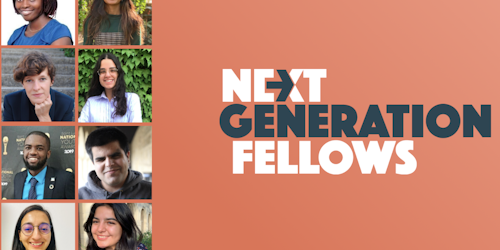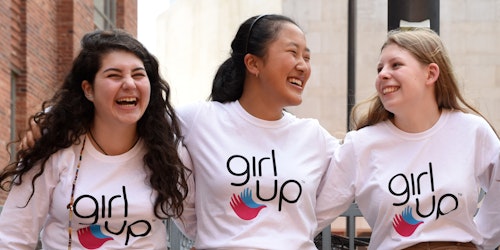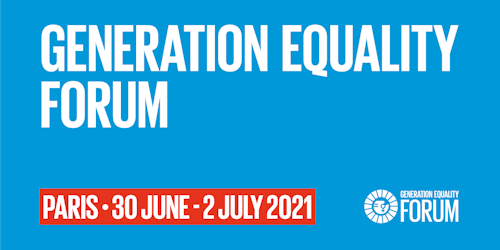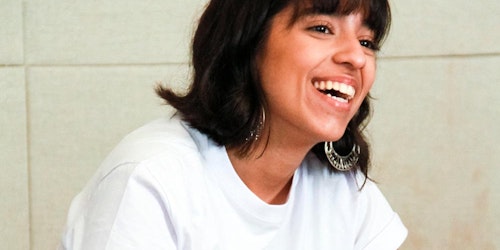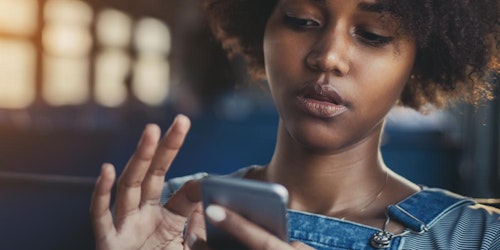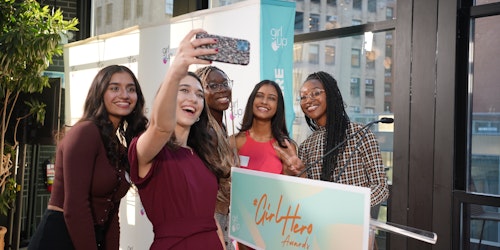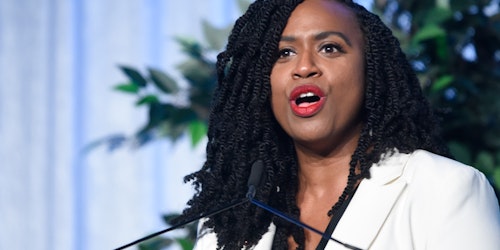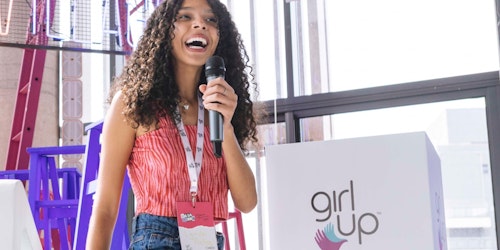What happens when people of different generations are able to share knowledge, experience, and skills with one another?
On September 16, key decision-makers and inspiring youth activists came together for a virtual Girl Talk panel on “Youth Leading at UNGA and Beyond,” which emphasized the power of intergenerational dialogue in breaking down barriers and advancing actionable advocacy.
Featuring leaders like the UN Women’s Deputy Director of the Civil Society Division Vivek Rai and Girl Up’s Senior Director of Global Community Sia Nowrojee, Girl Up youth leaders from around the world – from Turkey and Australia to Mexico, South Africa, and the United States – were able to ask questions, discuss critical international issues, and share their own words of wisdom.
As part of this dialogue, Sia spoke with Valeria Colunga, a Girl Up Leader and Next Generation Fellow from Monterrey, Nuevo León, México who is dedicated to ensuring that youth are at the center of global advocacy for gender equality, particularly at the UN.
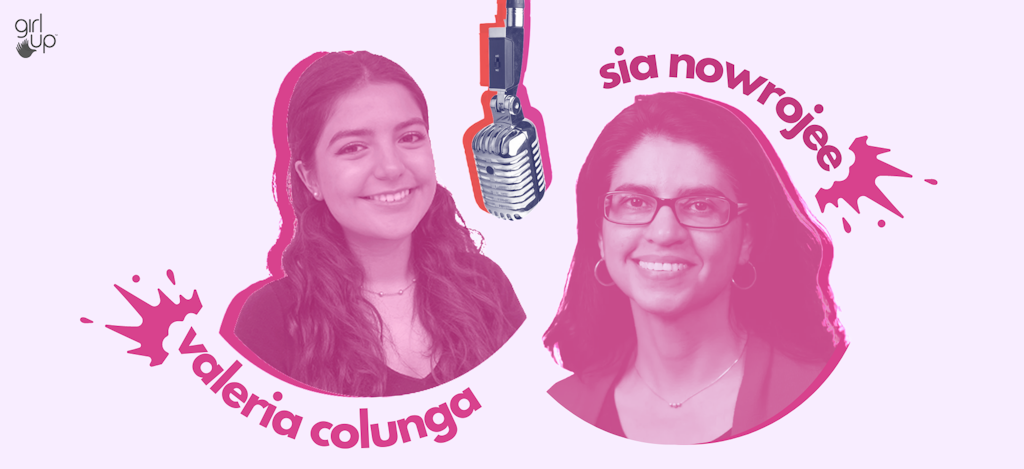
Sia Nowrojee: What was your first encounter with advocacy at the UN?
Valeria Colunga: I started my engagement with the UN through Girl Up back in 2017. At that point I didn’t really know what was the connection between Girl Up and the UN. I just knew that they were doing very cool stuff so I decided to open the first Girl Up Club, Girl Up Monterrey in Mexico, my hometown, with one of my best friends. That’s how we began our journey! Later on through our work, we started learning more about how we could also be a part of the UN’s broader organization and be designers in our own way of what the UN was doing.
SN: What issues have you been working on in your engagement with the UN?
VC: Obviously gender equality because of my connection with Girl Up. But when I graduated from high school and went to college at the University of Texas, I wanted to give myself the opportunity to learn more about other issues and their intersection with feminism and gender equality. Through that stage of my life, I realized how powerful young voices are. For instance, when I was in college and the pandemic hit, I had to go back home to my hometown. But while I continued to study from home, there were some things my friends and myself didn’t really like going on in Congress. To be specific, laws were being proposed to basically try to ban sex education in public schools. Even though I was in Mexico, my friends and I tried to find ways to lobby and communicate with our representatives, but we realized how hard that is because representatives think that because of your age you’re just trying to distract them. But in reality, when we’re speaking, it’s not to distract representatives, but to exercise our constituency and our citizenship. So from that moment, I really made it my mission to discover more ways in which we can meaningfully engage with young people, and that’s how I created my connection between the intersection of being young and gender equality. From there, I was able to connect with the UN’s Our Common Agenda and become a Next Generation Fellow.
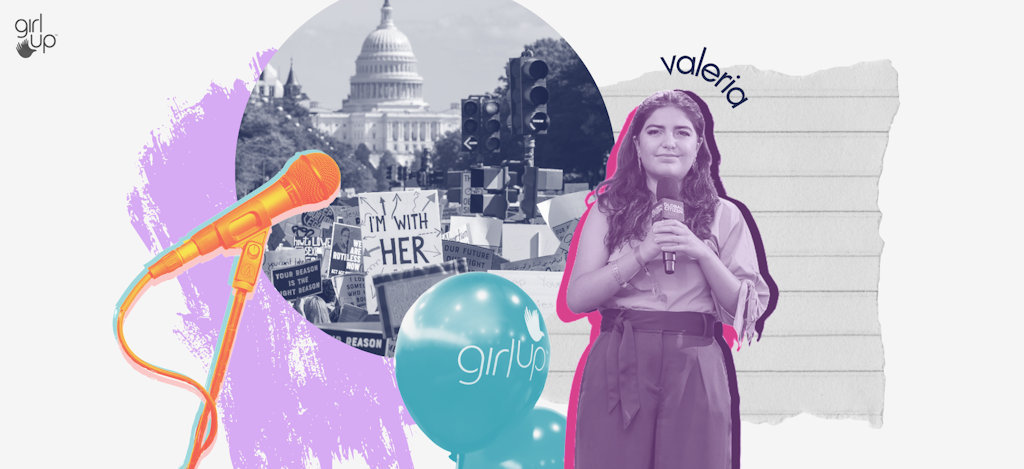
SN: I love how you’ve taken your local advocacy to the global level. Could you talk a little bit about your work with the Common Agenda?
VC: Of course! I was nominated by Girl Up to be one of the eight Next Generation Fellows appointed by the UN Foundation. The Next Generation Fellows basically work on the youth track for the Secretary General’s Our Common Agenda, which is now available for the public to read. It was a very exciting project because it allowed us young people to also have a say and a voice and send our recommendations, thoughts, and comments on what we wanted to see from the United Nations. My role along with other Next Generation Fellows, has been creating ideas and connecting with young people from different youth-led networks, hearing their ideas, talking with high-level officials and having meaningful conversations to find common ground so we can work together and push for a common agenda, like the name indicates. We then published a report, Our Future Agenda, which again is available online, and in that agenda, we share with the world what we hope the UN and their multilateral systems can create for future generations.
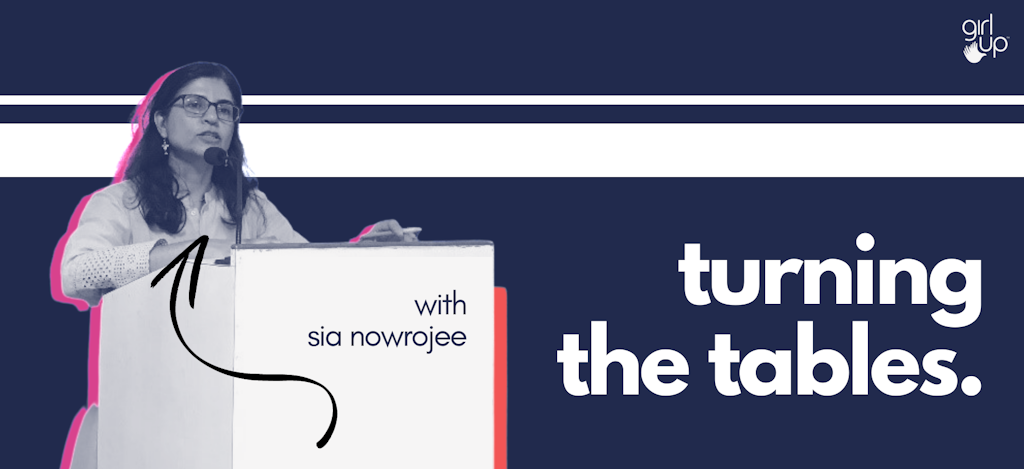
VC: I actually have a question for you! I believe that the UN is incredibly important because it gives people – young voices and diplomates and people at all levels – access to networks, funding, and just the ability to have meaningful conversations. But I want to know why do you think the UN is important and how does it remain relevant?
SN: I’ve been involved in advocacy at the UN at the 1985 World Conference on Women in Nairobi, Kenya, my home town, which I attended when I was in secondary school. That was a seminal moment for me, where I met amazing women from all over the world and began to understand the collective power of women. It was also inspiring for me because I attended the conference alongside my mother and my sister. Later, I attended the 1994 International Conference on Population and Development where I was part of the women’s global movement which was advocating for reproductive health and rights and really pushing the agenda beyond family planning and demographics to include attention to sexuality and gender. I think in those settings I saw the difference that could be made and I saw what happened when the UN was held accountable to the global community. What I saw in Cairo at the ICPD was the impact that women’s movements were having so that was really life-changing for me. Then when I attended the follow-up conference, ICPD25 over two decades later in Nairobi, Kenya, what I saw was the power of change. The conversation had changed because of youth, and as you said Valeria, youth gave that intersectional perspective, so there were conversations about disability and sexuality and reproductive rights, and on climate change and reproductive and sexual health and rights. The youth were making these connections between key global issues and telling us that we must pay attention. Youth are changing the UN, and if the UN wants to keep up, it’s going to have to listen to youth.
VC: Exactly and you know this reminds me of a saying that one of my university professors shared which is, “Being comfortable with being uncomfortable.” I think that’s what the UN and the multilateral systems need to do because young people are always pushing for change and talking about taboo topics that are necessary if we really want to talk about intersectionality and eliminate inequality.
SN: Yes and I agree. I think you know change can take time and it’s not always easy to change institutions like the UN, but what really inspires me is understanding that I’m part of a multi-generational movement that will continue to push for change. You know thinking about my mother and how she inspired me to participate at the women’s conference in Nairobi in 1985, and seeing that you are now in New York participating in UNGA today in 2021 – just being part of that continuum is inspiring and makes me believe that we can make the UN better, stronger, and more relevant to all of us so we can really be able to face the challenges of today.
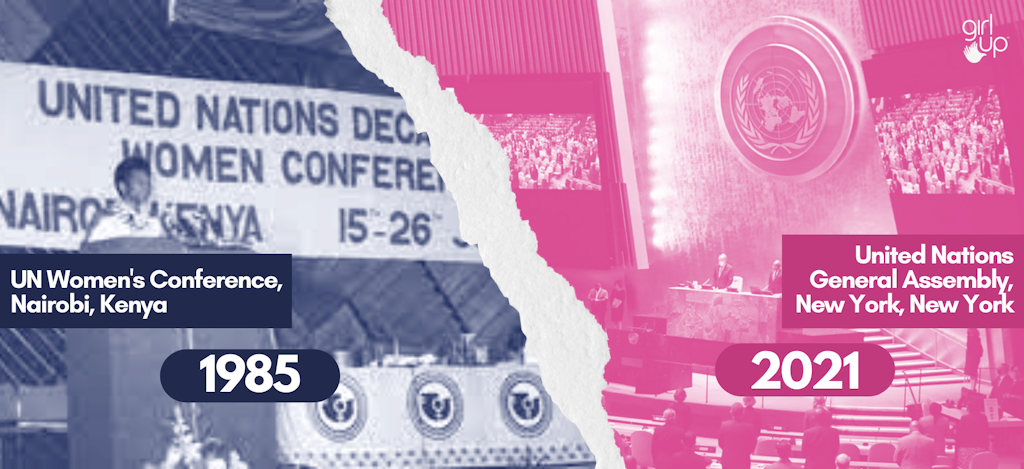
VC: I couldn’t agree more! So I do have one more question for you. What has inspired you and what has also frustrated you during your advocacy in the UN?
SN: I’ll start with what has frustrated me. As I mentioned, I was in Cairo at the ICPD in 1994 and then I was in Nairobi in 2019 talking about reproductive health and rights and sexual health and rights and it was frustrating to understand that we have still a lot of battles ahead of us. In some cases, we were saying the same things that we were saying 25 years ago. As I said, change is hard and it takes time. But I think what inspires me every time I am engaging with the UN or at a big UN conference is really that reminder that we are a global community. I mean it’s a beautiful thing to be reminded of that and often when we are in our own countries, we don’t see that. So, to be reminded that we are part of a global community and that there are others like us all over the world pushing for the same things that we’re pushing for, and there is such power in that sort of collective action and that solidarity, it inspires me.
To hear from all of our Girl Up leaders who participated in this intergenerational dialogue, watch the full September Girl Talk here. Want to participate in the next Girl Talk? Tune in on November 18 to learn more about youth advocacy and gender equality!
